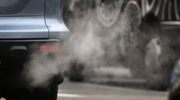
When Margaret Eluned Roberts was served her afternoon tea on September 22nd last year, she was just 37 days away from reaching her dream of turning 100. The Welsh nursing home resident had been looking forward to that milestone birthday—a celebration that would never come.
What happened next highlights a serious safety gap that could affect any of our loved ones in care.
Margaret, who was registered blind, spilled the hot black tea on herself while sitting in her chair. Within five weeks, complications from that seemingly simple accident would claim her life.
The tragedy raises urgent questions about how we protect our most vulnerable family members, especially as Australia introduces sweeping aged care reforms designed to put resident safety first.
Why hot liquids pose such a deadly threat to elderly residents
Liquids at temperatures of 120 degrees can cause deep and severe burns in minutes, while hotter temperatures can do so in seconds. Hot coffee and the steam from hot foods can cause painful and severe burns.
For elderly residents like Margaret, the danger is particularly acute. Health conditions common to the elderly, such as arthritis, neuropathy and Parkinson's disease, can increase the risk of elders spilling coffee on themselves. Their declining skin sensitivity, muscle atrophy, impaired vision, decreasing coordination and medication side effects all contribute to both increased accident risk and more severe injuries.
'Elderly patients are particularly prone to infection, mental health alteration and malnutrition, all of which are associated with increased morbidity and mortality'
The frightening reality is that ~90 per cent of residents are provided with a cup of tea at some point during each day in care homes, yet safety protocols aren't always adequate to prevent accidents.
Margaret's final weeks: How a burn became fatal
After Margaret spilled the tea, the burn initially covered eight per cent of her body. Staff applied cold towels and called for an ambulance, which arrived three hours later. Though the visible burn area reduced to four per cent—below the threshold for specialist burn unit admission—the damage was already setting in motion a series of complications.
Recovery also takes longer for older people due to thinning skin, limited nutrition, metabolic changes and an altered inflammatory response. Older adults further risk developing pulmonary edema, congestive heart failure and pneumonia in recovery.
Margaret developed exactly these complications—pneumonia and cellulitis from the burn wound. The coroner determined that her death resulted from 'medical conditions which were precipitated by the burn injury sustained on her leg,' combined with her age and pre-existing conditions.
Her daughter Linda's anguished question resonates: 'Why did they give a blind lady hot black tea?'
Why elderly residents are more vulnerable to hot liquid burns
Slower reaction times to pull away from heat
Impaired sensation that prevents quick responses
Thinner skin that burns more easily and deeply
Weaker immune systems leading to complications
Multiple medications that can affect healing
Existing health conditions that worsen outcomes
Your rights under Australia's new aged care laws
Australia's aged care system is undergoing its biggest transformation in decades. The Australian Parliament passed the Aged Care Act 2024 as the new law for government-funded aged care in Australia on 25 November 2024. The new Act will start from 1 November 2025 and places the rights of older people at the centre of the system.
Put older people's rights at the centre of the system, emphasising independence, safety, and respect. This means care homes will be held to higher standards for resident safety, including proper protocols around serving hot beverages.
The reforms respond directly to the 2021 Royal Commission, which highlighted gaps in safety, transparency, and person-centred care.
Safety measures that could prevent tragedies like Margaret's
Questions to ask about hot beverage safety at your loved one's care home
- Are staff trained in safe serving protocols for hot liquids?
- Are specialised cups with secure lids available for residents with vision or mobility issues?
- What's the maximum temperature for served beverages?
- How quickly can staff respond to accidents?
- Are there protocols for residents who want independence but need safety support?
Discover the Cups for Elderly collection at Aged Care & Medical, featuring adaptive cups and mugs designed for easy grip and spill prevention. Ideal for supporting hydration and independence in aged care and home care settings. These specialised drinking aids include spouted lids and thermal insulation with a unique inner cone design that can maintain safe temperatures.
Nursing homes should always ensure food and coffee are served at safe temperatures, and that coffee is served in cups with secured lids.
The devastating impact of burn injuries on elderly residents
Severe Pain and Long Recovery—Elderly residents often experience severe pain from burns, requiring extensive treatment and long-term care. Infections and Sepsis—Burned skin is highly prone to infections, which can quickly escalate to sepsis, a life-threatening condition that requires immediate medical intervention.
Margaret's case demonstrates this tragic progression perfectly. What started as a tea spill became a complex medical emergency involving multiple body systems, ultimately proving fatal despite medical intervention.
Adults 60 and older see higher hospitalization and fatality rates from burn injuries. The statistics are sobering, but knowledge can be protective.
What families can do to protect their loved ones
The new aged care legislation empowers families to demand higher safety standards. Here's what you can do:
Start conversations with care home staff about safety protocols before incidents occur. Ask specific questions about hot beverage service, especially for residents with vision impairments or mobility challenges.
Look for care homes that proactively use adaptive equipment and have clear emergency response procedures. Regular maintenance checks can help identify and address any potential issues before they become major problems. Furthermore, well-maintained equipment is more likely to function efficiently and last longer.
Remember that under the new aged care laws, your loved one has the right to safe, dignified care that respects their independence while protecting their wellbeing.
A milestone that should have been celebrated
Margaret Eluned Roberts wanted nothing more than to reach her 100th birthday. The coroner acknowledged this dream, telling Margaret's daughter that 'it would have been such a significant milestone for her and for [you].'
Instead, a simple afternoon tea became the beginning of the end. The tragedy serves as a stark reminder that even the most basic daily activities require careful safety considerations in aged care settings.
What This Means For You
As Australia's aged care system transforms to prioritise resident rights and safety, Margaret's story must not be forgotten. Every cup of tea served, every safety protocol implemented, every staff training session conducted should honour her memory by ensuring no other family faces such a preventable loss.
Have you had conversations with your loved one's care home about their hot beverage safety protocols? What questions do you think families should be asking to ensure their relatives are properly protected?
Original Article
https://7news.com.au/news/world/mar...100-but-one-cup-of-tea-stopped-her-c-19744925
A study of burn injuries in the elderly in a regional burn centre—PubMed
Cited text: PMID: 26240461 Free PMC article. Aetiology and outcome of elderly burn patients in tabriz, iran.
Excerpt: Liquids at temperatures of 120 degrees can cause deep and severe burns in minutes, while hotter temperatures can do so in seconds.
https://pubmed.ncbi.nlm.nih.gov/11348749/
A study of burn injuries in the elderly in a regional burn centre—PubMed
Cited text: Maghsoudi H, Ghaffari A. Maghsoudi H, et al.
Excerpt: Health conditions common to the elderly, such as arthritis, neuropathy and Parkinson's disease, can increase the risk of elders spilling coffee on themselves.
https://pubmed.ncbi.nlm.nih.gov/11348749/
Nursing guidelines : Nursing management of burn injuries
Cited text:
Excerpt: declining skin sensitivity, muscle atrophy, impaired vision, decreasing coordination and medication side effects
https://www.rch.org.au/rchcpg/hospital_clinical_guideline_index/Nursing_management_of_burn_injuries/
Beverage Intake and Drinking Patterns—Clues to Support Older People Living in Long-Term Care to Drink Well: DRIE and FISE Studies—PMC
Cited text: These preferences were reflected in drinks provided by care homes, with ~90 per cent of residents being provided with a cup of tea at some point during each d...
Excerpt: ~90 per cent of residents being provided with a cup of tea at some point during each day
https://www.ncbi.nlm.nih.gov/pmc/articles/PMC6412353/
Aged Care Act 2024—Federal Register of Legislation
Cited text: A Future Law compilation of this Act to incorporate the amendments from the Aged Care and Other Legislation Amendment Bill 2025 (Schedule 1) is availa...
Excerpt: The Australian Parliament passed the Aged Care Act 2024 as the new law for government-funded aged care in Australia on 25 November 2024.
https://www.legislation.gov.au/C2024A00104/asmade
Aged Care Act 2024—Federal Register of Legislation
Cited text:
Excerpt: the rights of older people
https://www.legislation.gov.au/C2024A00104/asmade
Cups for Elderly—Drinking Aids for Easy Grip | Aged Care & Medical
Cited text: Discover the Cups for Elderly collection at Aged Care & Medical, featuring adaptive cups and mugs designed for easy grip and spill prevention. Ide...
Excerpt: Discover the Cups for Elderly collection at Aged Care & Medical, featuring adaptive cups and mugs designed for easy grip and spill prevention.
https://agedcareandmedical.com.au/collections/cups-for-elderly
Cups for Elderly—Drinking Aids for Easy Grip | Aged Care & Medical
Cited text: The Ornamin Spouted Lid—Large Opening is an essential aid for independent eating and drinking, designed to support individuals with limited neck mob...
Excerpt: spouted lids
https://agedcareandmedical.com.au/collections/cups-for-elderly
Cups for Elderly—Drinking Aids for Easy Grip | Aged Care & Medical
Cited text: The Ornamin Mug with Cone—Large Handle (160ml) is a revolutionary drinking aid designed for individuals with limited neck movement or hand control; ...
Excerpt: thermal insulation with a unique inner cone design
https://agedcareandmedical.com.au/collections/cups-for-elderly
A study of burn injuries in the elderly in a regional burn centre—PubMed
Cited text: Ann Burns Fire Disasters.
Excerpt: Nursing homes should always ensure food and coffee are served at safe temperatures, and that coffee is served in cups with secured lids.
https://pubmed.ncbi.nlm.nih.gov/11348749/
Burn injury—PMC
Cited text: Burns in children <5 years of age tend to be scald injuries, with increasing flame-related burns as age increases28. Around the world, burns in the el...
Excerpt: Severe Pain and Long Recovery—Elderly residents often experience severe pain from burns, requiring extensive treatment and long-term care.
https://pmc.ncbi.nlm.nih.gov/articles/PMC7224101/
Nursing Home Burn Injuries—Causes, Complications & Neglect
Cited text: The 2017 tragic death of 83-year-old Donna Chapman in a St. Louis nursing home, as reported by the St. Louis Post-Dispatch, serves as a grim reminder ...
Excerpt: Regular maintenance checks can help identify and address any potential issues before they become major problems.
https://nursinghomesabuse.org/nursing-home-injuries/burns/







